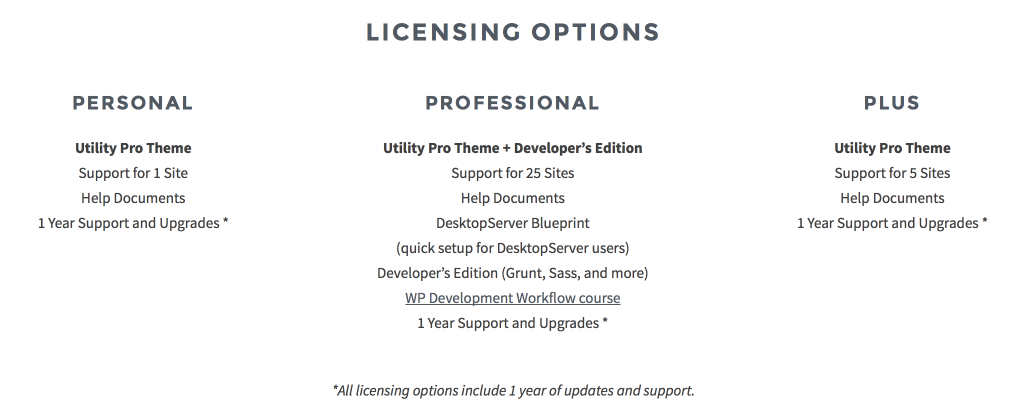WordPress the open-source software project is licensed under the GPLv2. This license grants users and developers the following freedoms.
- The freedom to run the program, for any purpose.
- The freedom to study how the program works, and change it so it does your computing as you wish.
- The freedom to redistribute copies so you can help your neighbor.
- The freedom to distribute copies of your modified versions, giving the community a chance to benefit from your changes.
A number of commercial WordPress themes and plugins have followed WordPress’ lead and are also GPL licensed or compatible. Developers are not allowed to add restrictions to GPL licensed software which is why some product descriptions may be confusing to potential customers.
For example, this GPL licensed product has three different purchase options available. One of the features highlights how many sites the plugin can be used on, or at least that’s the impression.

Further down the same page is information that explains each license gives users access to one year of support and updates. What the text in the image fails to explain is that you’re not limited to using the plugin on a specific number of sites. Rather, those are the number of sites you can apply a license key to in order to receive updates and support.
The wording is misleading and could cause potential customers to purchase the plugin multiple times if they need to use it on more than one site or in this case, three sites.
An excellent example of a product page that eliminates this confusion is the store page for Utility Pro. The license options are clear and tells customers the number of sites they’ll receive support and updates for.

I get pitched to review WordPress products all the time and one of the first things I look for is if it’s GPL licensed. Too often, I come across product descriptions that give me the impression the product can only be used on a certain number of sites. This raises a red flag as it’s a restriction of the product’s use.
To the benefit of potential customers and people like me, I respectfully ask that WordPress developers who sell GPL licensed products review their feature listings and clearly define that people are purchasing support for a specific number of sites. This way, customers know exactly what they’re buying.
In the example above, replacing the word Use with Support and Updates For would make things much clearer to the customer and eliminate the confusion.